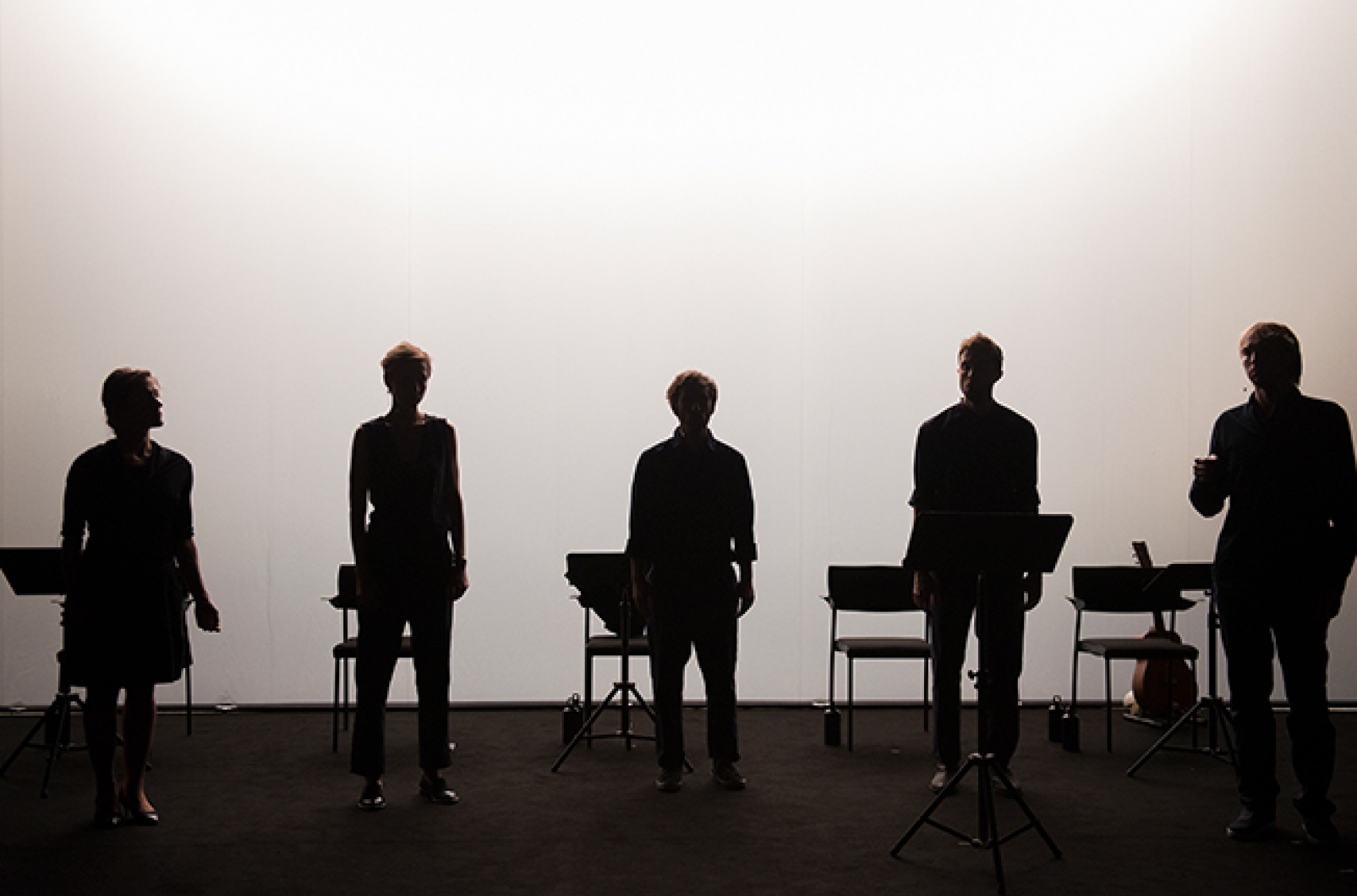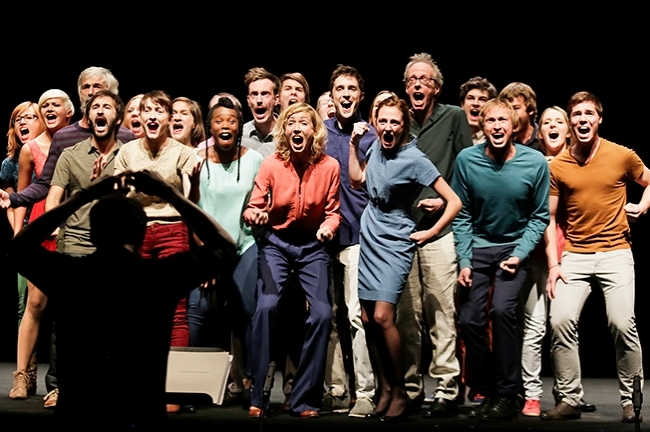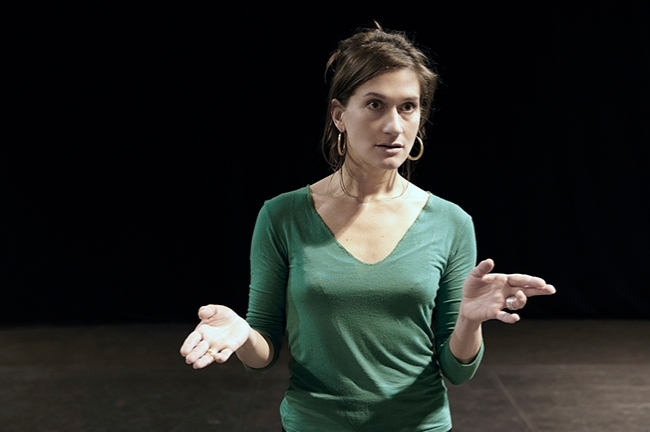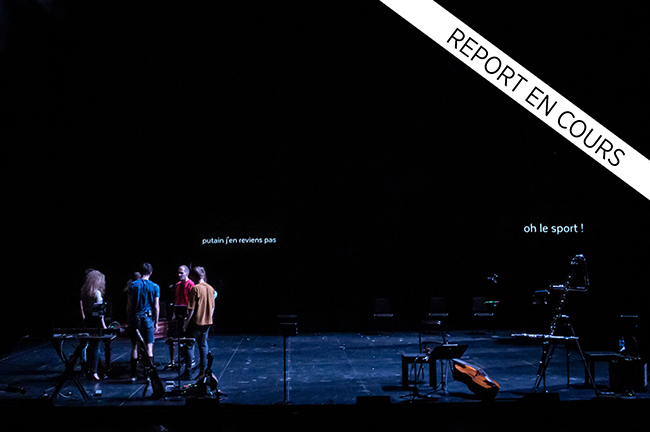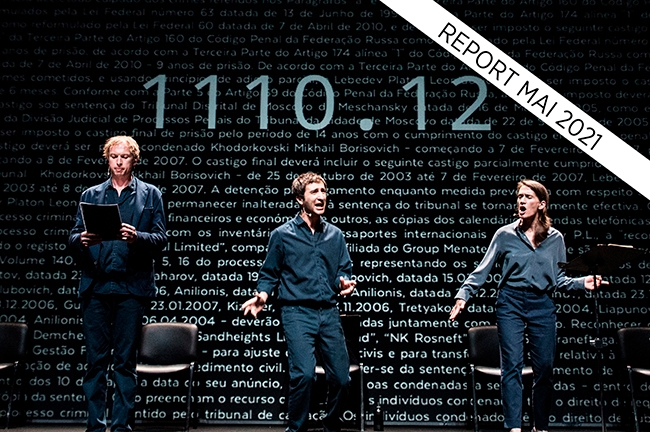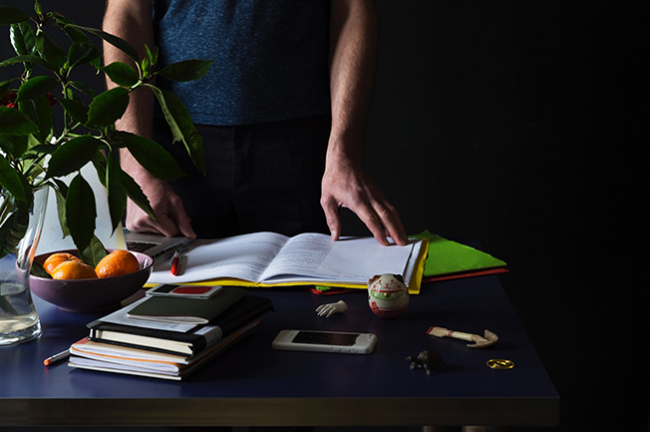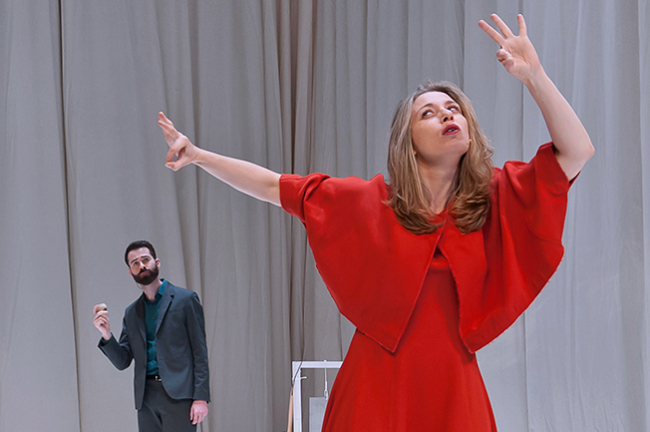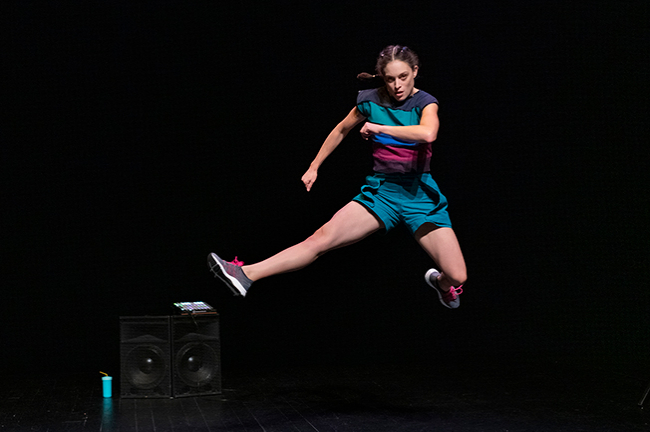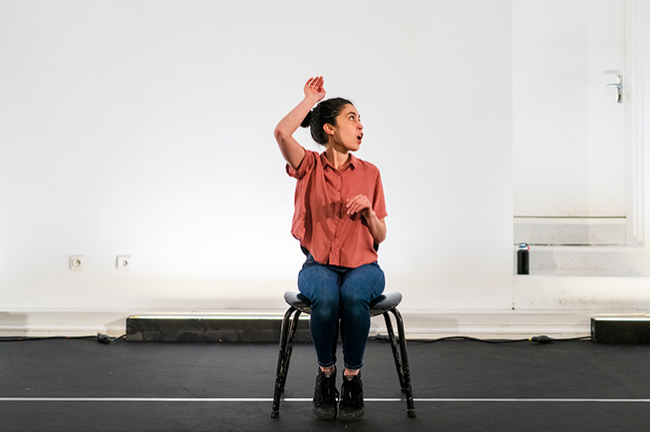Over the last ten years, the Encyclopédie de la parole has been inventing a new form of theatre which puts the emphasis on the diversity of oral forms and the musicality of language. For the artists and researchers of this collective centred around the work of Joris Lacoste, the melodies, rhythm, inflections and silences of the spoken word are as significant as the words themselves.
With Parlement, blablabla and L’Encyclopédiste and the creation of the complete cycle of suites which the Festival d’Automne has been supporting since 2013 – Suite n°1, Suite n°2, Suite no°3, and Suite n°4 -, this Portrait reveals unveils a fascinating collection of over one thousand sound-based documents completed and brought back to life with each proposition by virtuoso performers. At the crossroads between sound poetry and documentary inquiry, this collection is an invitation to embark upon, in the literal sense of the word, an unheard of sensorial exploration of today’s world.
How can we build up the Portrait of an encyclopaedia?
The Encyclopédie de la parole is both collection and collective. The collection comprises more than one thousand sound recordings of all kinds which have been painstakingly put together, indexed and catalogued on our website in accordance with formal phenomena. The collective is a geometrical form which varies greatly according to the different era and projects, but which regroups a common interest in orality from the viewpoint of different practices: poets, actors, dramaturges, musicians, choreographers, directors, linguists, and film and radio directors… We are less interested in doing our own self-portrait, even though it might be a collective one, than in attempting to draw up a multiple, fragmented portrait of our collection: it is made up of so many characters, situations, emotions, worlds and stories! It is basically what we try to do every time we create a new piece of work: we approach this collection of words in a particular way and try to turn it into something which captures people’s attention in some way according to certain criteria and certain points of view. This Festival d’Automne Portrait is the same thing, except bigger.
What does this Portrait represent in your work as an artist?
Firstly, it cements this close collaboration with the Festival d’Automne which began in 2013 with the creation of Suite n°1. But it also allows us to link back up again with our debuts at the Laboratoires d’Aubervilliers in 2007-2008. We asked ourselves the following questions: how can we open up our research to audiences, and how can we make this sound collection heard? We began by organising listening sessions entrusted to sound artists. We then began exploring different formats, from the most analytical - the website, articles, conferences etc – to sensory ones – shows, as well as sound installations and works designed for the radio, performances, games, and amateur and professional choirs. Even if the propositions it contains are spread out further across space and time, we hope that this Portrait, will enable spectators to make connections, follow trains of thought, and develop relations between words and between shows.
How have the different shows to be presented been put together?
This programme provides us with the opportunity to present the entirety of the eight shows which, up to the present day, have been conceived and produced by the Encyclopédie: they are the creations or co-creations of Joris Lacoste, Emmanuelle Lafon, Frédéric Danos, Nicolas Rollet, Élise Simonet, Pierre-Yves Macé and Sébastien Roux.
Each show promises a different mechanism or way of hearing, poses its own problems and constructs its own fictions. Thus, the Parlement solo is comprised of fragments of spoken words concatenated at high speed; Suite n°1 , which we will be re-creating for the Festival, takes the form of a great choir of words; Suite n°2 is a quintet which explores the co-existence of heterogeneous and performative words; in Suite n°3, the relationship with music is intensified in the form of a spoken opera accompanied by a pianist; blablabla explores what children hear in the world; Jukebox builds up a sound landscape of a particular area or territory; in Suite n°4, the spoken word recorded as such becomes the sole character, orchestrated by the Ictus contemporary music ensemble; and lastly, L’Encyclopédiste offers a unique insight in that it amounts to, for the first time, a show based on commentary and digression stemming from recordings. Thus, this Portrait provides us with the opportunity to justify our strange
